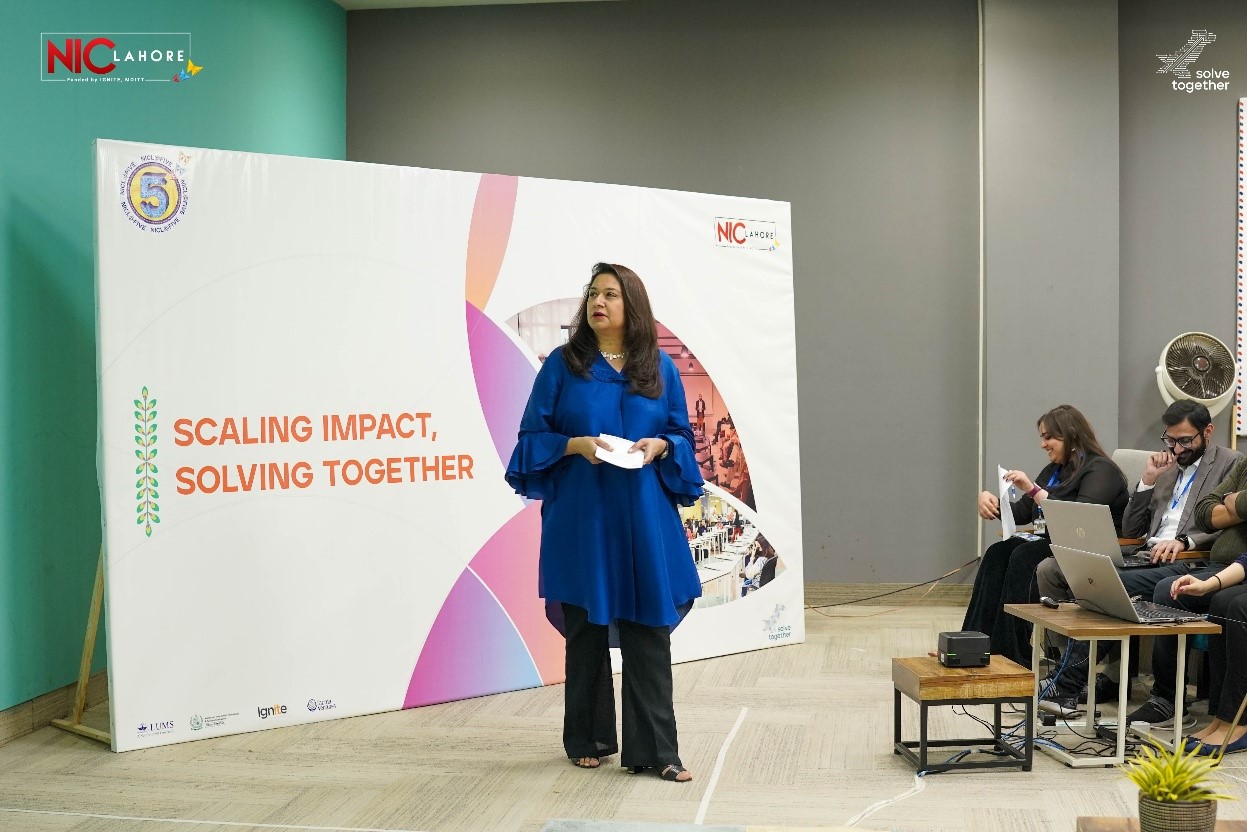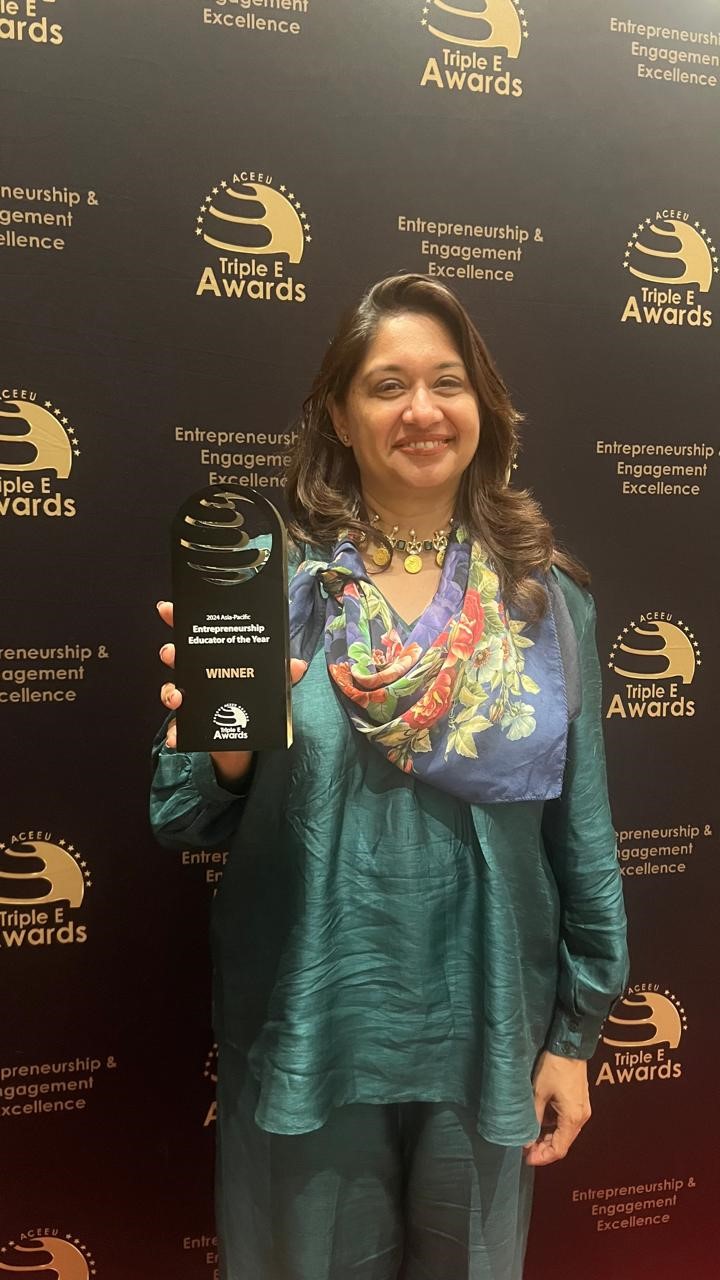
What began as a flexible teaching job turned into a lifelong vocation. Twenty years ago, I entered the classroom seeking balance as a young mother—unaware that the journey ahead would shape not only my students but also me. I approached teaching as a structured exchange: deliver content, assign projects, assess learning. But entrepreneurship doesn’t fit into neat boxes. It’s messy, dynamic, and deeply personal. And it was in this complexity that I found my calling. Higher education institutions have strong potential for impact: even more so when they empower educators to design, deliver, and evaluate study programs that are engaging, flexible, and inclusive.
Teaching Entrepreneurs, Not Just Entrepreneurship
My early teaching experiences were in creative institutions like Beaconhouse National University and the Pakistan Institute of Fashion Design. I encountered students with powerful ideas in textiles, jewelry, and leather goods—but they lacked the tools to translate creativity into viable enterprises. Helping them navigate feasibility, branding, and customer insight made me realize I wasn’t just teaching entrepreneurship. I was helping them believe they could be entrepreneurs.
It also became clear that good entrepreneurial education is about more than content—it’s about confidence, community, and adaptability. Students needed someone to believe in them, to ask the right questions, and to remain present beyond the classroom. That’s when teaching shifted from instruction to mentorship.
From Creative Roots to Learner-Centered Classrooms
With a background in the creative industries, I could bridge design thinking with entrepreneurial problem-solving. But I knew I needed to grow as an educator. I pursued a certification in entrepreneurial coaching from Saarland University, Germany, and earned a teaching and learning certificate at Lahore University of Management Sciences (LUMS) in Pakistan. These milestones refined my pedagogy and confirmed my instinct that learning should be more experiential.
I began creating original content—video cases, interactive exercises, and storytelling-led discussions. My classroom became a space where learning was active, contextual, and co-owned by students. The shift was transformative—for them and for me.
Ecosystem Building at LUMS and Beyond
At the LUMS Centre for Entrepreneurship, I led the design of a Mini-MBA-style boot camp for early-stage entrepreneurs. Built around eight core modules, the program emphasized feedback loops and on-the-ground adaptability. Launched in 2020, it continues to evolve, rooted in field realities rather than static templates.
This spirit of responsiveness also shaped my work in underserved regions like Quetta, Baluchistan. The contrast with urban centers like Lahore was stark: fewer resources, limited infrastructure, and lower exposure. Yet, the entrepreneurial drive remained strong. I learned that programs successful in one context can’t simply be transplanted into another. They must be reimagined with cultural sensitivity, centred around the trust of local communities
These experiences taught me that ecosystem building isn’t about scaling a model—it’s about listening, staying present, and adapting collaboratively. And sometimes, the best learning happens when things don’t go as planned.

Letting the Work Lead
Over time, I let go of career blueprints and allowed the work to shape my path. Each new project, challenge, and learner offered a chance to unlearn and reimagine. I moved between coaching design students and advising tech startups; from developing urban incubators to building programs in remote areas. The diversity grounded me. It reminded me that while methods vary, the mission remains the same: empower people to act, adapt, and lead.
This approach also reminded me that the most meaningful shifts often go undocumented—a student deciding to build in their hometown, a founder who reframes failure, or a community that learns to trust its own potential. These are the quiet victories that shape resilient ecosystems.
The Road Ahead
As emerging technologies like AI and blockchain redefine entrepreneurship, our role as educators becomes even more vital. We must build capacity across education, health, environment, and finance—not just with tools, but with values: empathy, inquiry, and courage.
My current focus lies in integrating innovation with inclusive design—creating learning spaces that are both technologically current and deeply human. I believe the best entrepreneurial educators are not just content experts, but facilitators of possibility. By redesigning education, universities and educators can shape their impact on students, communities, and ideas.
In retrospect, it wasn’t the lesson plans or learning outcomes that shaped my journey—it was the learners themselves. Their questions, their struggles, their persistence. The classroom remains my anchor, whether in a university, a boot camp, or a rural community.
To fellow educators and ecosystem builders: don’t wait for a perfect plan. Let the work guide you. Follow the energy. Trust the learners. The journey will surprise you—and shape you in return.

.

.
Images courtesy of the author